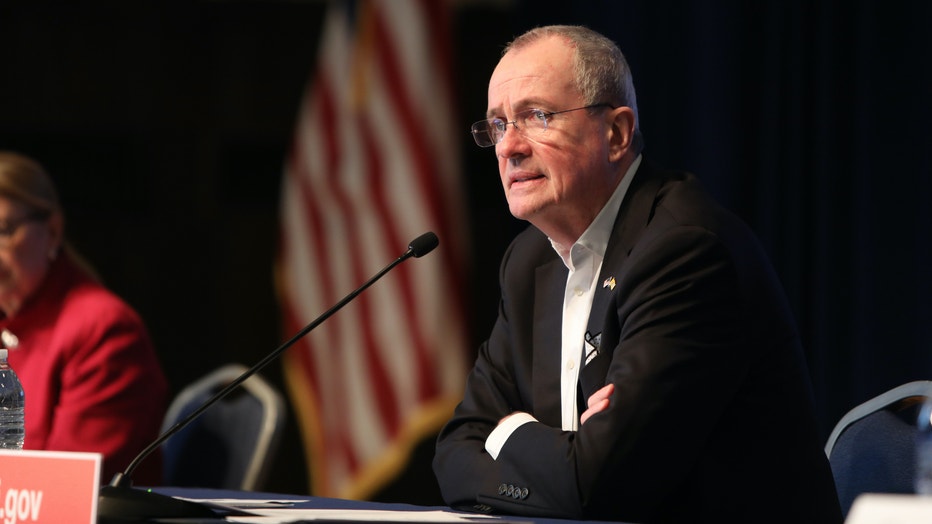NJ residents now required to wear masks outdoors when social distancing is not possible
TRENTON, N.J. - New Jersey Governor Phil Murphy signed an executive order Wednesday requiring masks or face coverings be worn both indoors and outdoors when social distancing is not possible.
Murphy made the announcement Wednesday morning in an appearance on MSNBC's "Morning Joe."
"There's no question that face coverings are game-changers. I think we were the first state in America to require them indoors. They've been strongly recommended out of doors," Murphy said. "We're going to turn that up a notch today and say we're going to ask you, if you can't socially distance, it's going to be required."
In a tweet, Murphy laid out the exceptions to the mask requirement which include:
- Children under two-years-old
- While eating at outdoor establishments
- When wearing a mask would inhibit health or safety
Several states have implemented new orders on face coverings as new spikes in cases have popped up across the country.
Murphy has yet to lay out specifics for enforcement of the order. He was asked if someone walking down the boardwalk without a mask, what would the enforcement be like on the mandate.
"If you're there by yourself or with your family, the answer is no. But, if you're congregating with a lot of other folks and there is no social distancing, you're going to at least get a warning, if not something stronger. It's harder, admittedly, this is harder to enforce, which is why it's not a no brainer," Murphy stated.

New Jersey Gov. Phil Murphy (Edwin J. Torres/Governor's Office)
"We’ve gone through hell in New Jersey, we've lost over 13,000 people. We've brought our numbers way down. We can't go through that hell again," he added.
The mask requirement order would also come just a day after New Jersey added three more states to their mandatory self-quarantine list, including Delaware. People who have traveled to or from 19 states are now required to self-quarantine for 14 days upon arriving in New Jersey.
New York, New Jersey and Connecticut had previously restricted access to travelers from 16 states including Alabama, Arkansas, Arizona, California, Florida, Georgia, Iowa, Idaho, Louisiana, Mississippi, North Carolina, Nevada, South Carolina, Tennessee, Texas and Utah. Kansas and Oklahoma were also added to the list on Tuesday.
Earlier this week Murphy said the rate of transmission of COVID-19 in New Jersey had exceeded 1.0 for the first time in a month and a half. That’s the average number of people infected by each infectious person.
During Tuesday's appearance, the governor also shed some more light on the situation with reopening schools.
"It's hard because this is a virus that operates on its own terms. We can't dictate the future here. We have put out guidelines. We have a strong bias that we'll get out kids back in school in some form, Murphy said before adding that he does foresee schools opening this fall. "Right now, I do. Obviously we've got to reserve the right to tweak that if it means saving lives."
"The toughest nut for me to crack here is the asymptomatic healthy, young person unwittingly passing the virus to someone who is older – an educator, administrator or someone with a co-morbidity. So that informs a lot of the steps we are going to take. But right now, as we sit here, we want to see schools open in the fall," he added.
The new order would mirror the one recently signed by Pennsylvania Governor Tom Wolf that requires masks be work whenever you leave your house, if remaining six feet from others is not possible.
___
RELATED COVERAGE:
NJ expands travel restrictions to 3 more states, including Delaware
New Jersey's coronavirus transmission rate ticks up as outbreaks reported
___
For the latest local news, sports and weather, download the FOX 29 News app.
DOWNLOAD: FOX 29 NEWS APP

